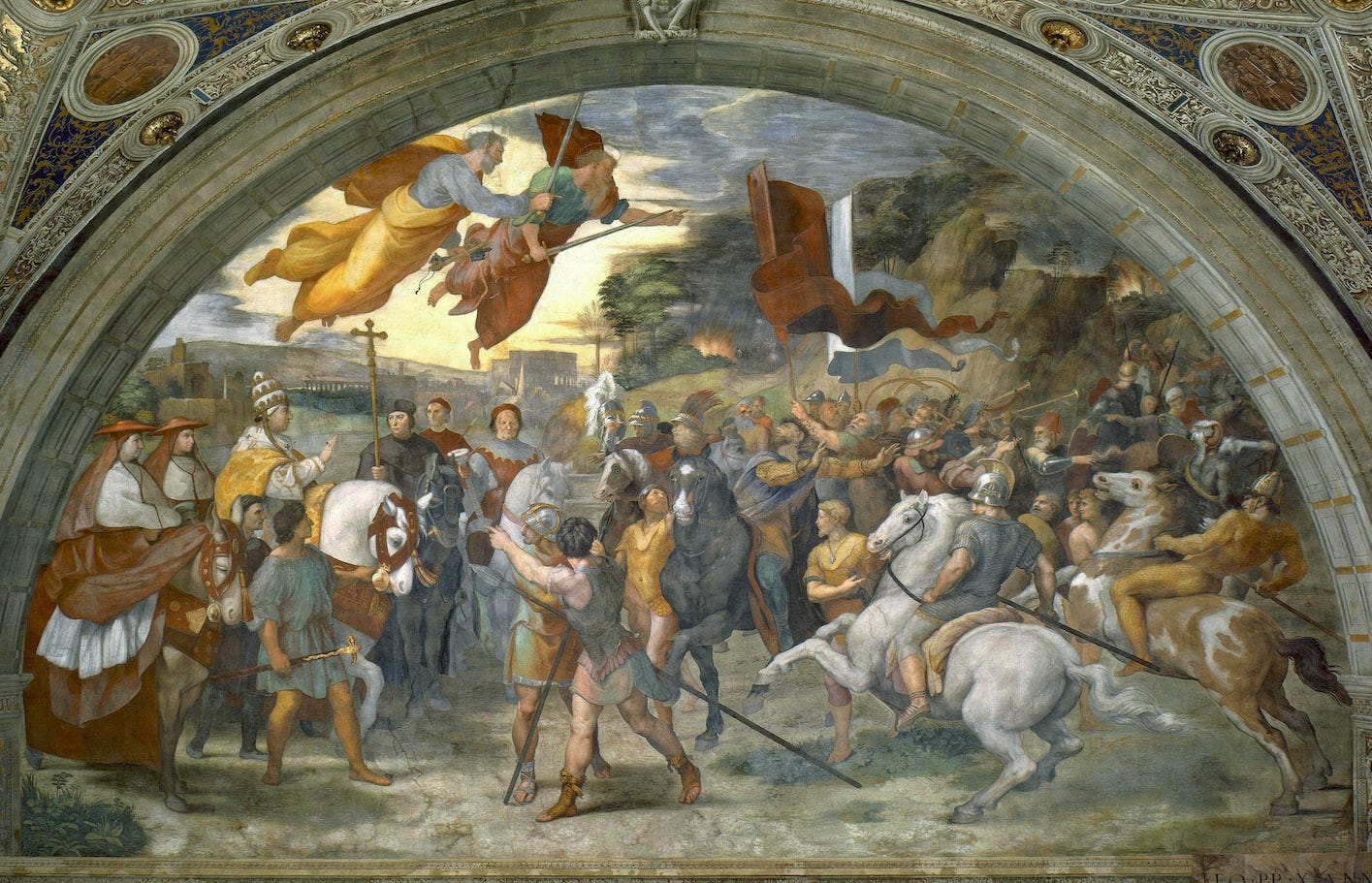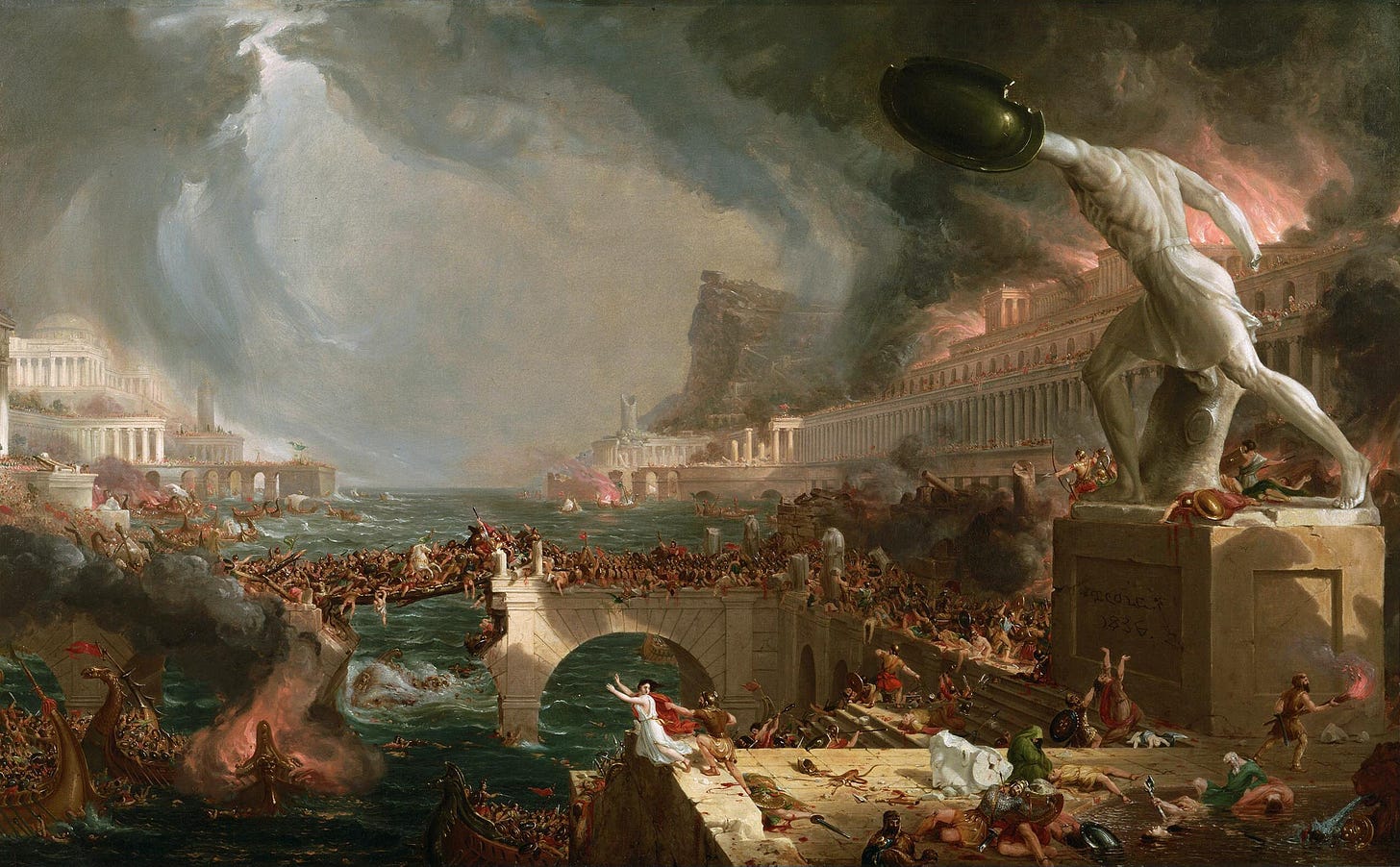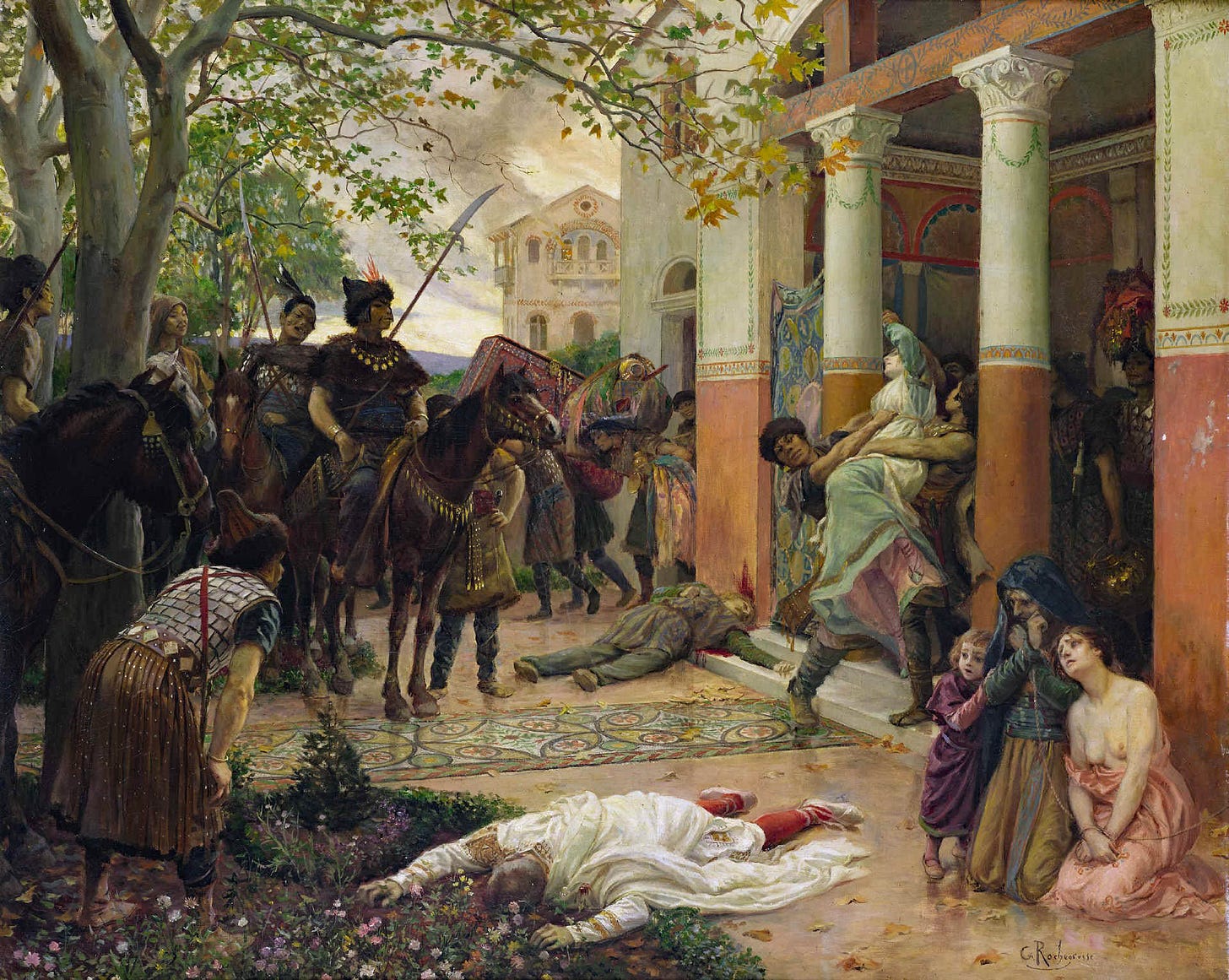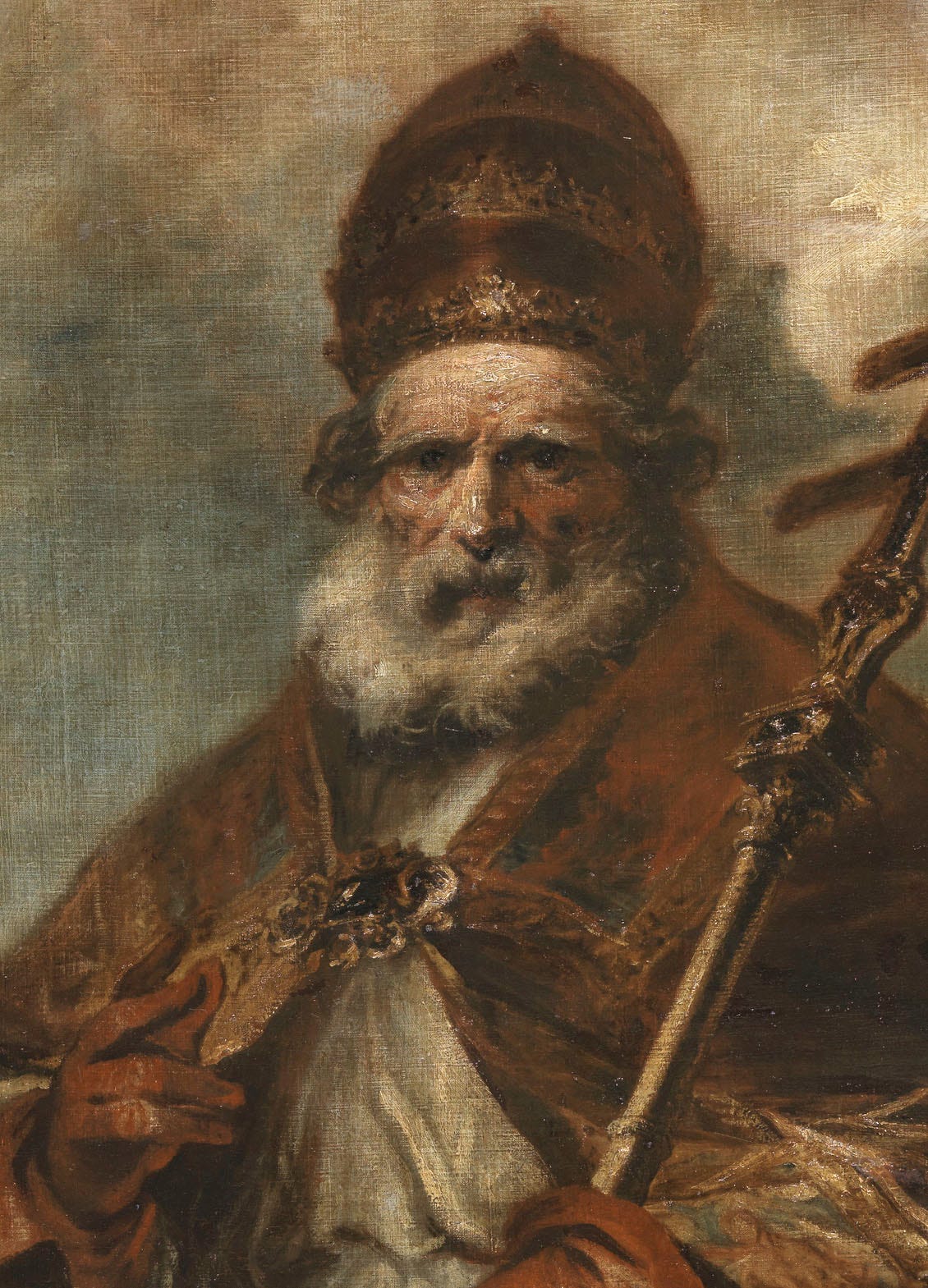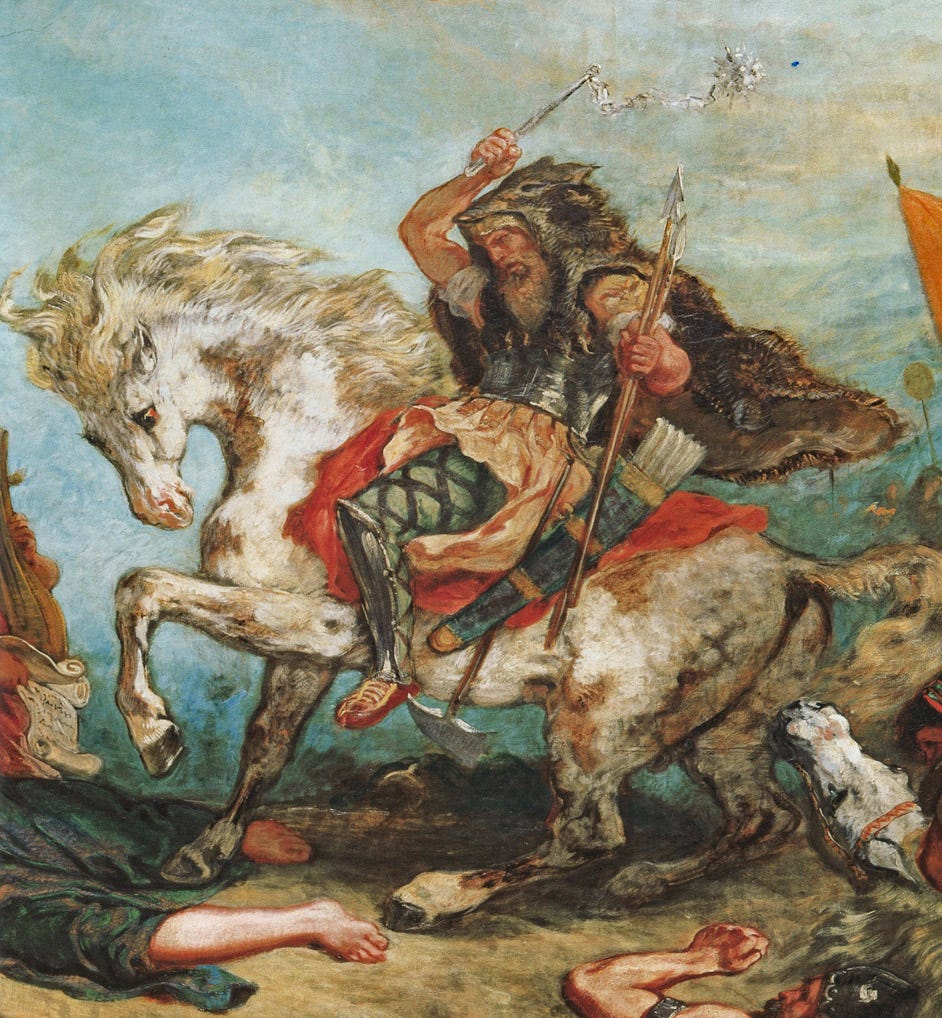The Rewards of Practising What You Preach
When Attila the Hun & Pope Leo the Great changed the course of history...
When looking into the vast gulf of history for inspiration, instinct guides our attention towards those who steered our civilisation in times of greatness. Yet it is those who kept the flame alive in times of darkness who are arguably more helpful role models.
After all, to paraphrase Hopf’s popular maxim, good times are made by strong men, and strong men are made by hard times. Few such men, however, rose from harder times than Pope Leo I, the man who faced down Attila the Hun, and the first of only three Supreme Pontiffs in history to be called ‘The Great’.
Yet where the conquests of Alexander the Great crumbled upon his death, those of Leo only matured with the centuries — his legacy is the very institution of the Papacy itself as a major player on the world stage, and the survival of the Church beyond the collapse of the Roman Empire.
Yet Leo’s greatness was firmly rooted in a simple quality that is not beyond the reach of any of us — consistency of words and actions. Today, therefore, we explore what Leo Magnus can teach you about integrity, and how it can build more lasting empires than force…
The Hardest of Times
At perhaps no other time in history has it been easier to fall into despair than it was in the lifetime of Pope Saint Leo the Great.
Born in Tuscany around the turn of the 5th century AD, Leo would know nothing but the collapse of Roman civilisation, and civilisation itself. We do not know the precise year of his birth, but it is quite possible he was a teenager in AD 410, when Rome herself fell to the warlord Alaric, and was sacked for three torturous days by the Visigothic hordes.
Things would only get worse from there, however, as the maturity of Leo’s life coincided with the disintegration of the entire Roman Empire in the West. Yet the most terrible of times was still to come, for in AD 433, when Leo was serving as a deacon in the Church, the death of the warlord Ruga brought two new kings to the helm of the tribes that dwelled on the Danubian frontier. Within just a few years, one of the brothers would be dead, and the survivor, Attila, would lead the Huns — a people said to “exceed every degree of savagery” (Ammianus Marcellinus, Roman Antiquities, XXXI.2) — upon such an orgy of conquest, plunder and slaughter that his name lives forever in infamy.
“He sought to subdue the foremost nations of the world … He was a man born into the world to shake the nations, the scourge of all lands, who in some way terrified all mankind by the dreadful rumours noised abroad concerning him”
Jordanes on Attila the Hun, The Origin and Deeds of the Goths, XXXV
Leo’s consecration as Pope on the 29th September AD 440 was indeed a solitary spark of hope in a world all but given over to the Apocalypse. Within just months, the Huns had ravaged the Eastern Roman Empire as far as the walls of Constantinople herself, and by the decade’s end, had reduced her to a mere tributary state. Emboldened by this apparent weakness, Attila dared next to strike the West.
Leaving a trail of devastation in his wake, Attila fell upon Roman Gaul in AD 451, and then Italy herself a year later. With no remaining armies strong enough to resist them, the Huns razed all of Venetia, and destroyed utterly the once great city of Aquileia:
“They built machines and brought up all kinds of artillery and quickly entered the city, which they despoiled, smashed asunder and devastated so savagely that they left hardly a trace of it to be seen”
Jordanes, Getica, 42
The chaos this unleashed was such that the Western Roman Emperor Valentinian III himself abandoned Ravenna and fled south. It was in this moment, when all Italy lay naked before the Hun, that the Romans turned to their last hope — their bishop. Thus Pope Leo, as shepherd of the Romans, embraced his highest calling and resolved to protect his flock. This he would do by marching north to meet their terror head on, armed with nothing but his unshakeable faith, and reputation as an honest man.
So it was that at the ford of the river Mincius near Mantua that Attila, the fearsome conqueror of the world and scourge of God Himself stared with bewilderment at the old man before him, whose wizened body appeared the very image of the decrepitude of the Romans.
Yet that which Rome had failed to do with arms, Leo the Great was about to achieve with mere words: the taming of the Hun…
Light Outshines the Dark
To say that it took no modest courage on Leo’s part to face Attila would be a gross understatement. The weapons of the Huns, after all, were still stained with the blood of the thousands of civilians they had massacred at Aquileia.
The rage of Attila, too, was legendary, and the years prior had been defined by a litany of failed attempts to placate him. Indeed many an ambassador before Leo had been threatened with death or savage torture by the Hunnic warlord (Priscus, Exc. de Leg. Rom. 3 & 6), whose baleful gaze now fell upon the Pope.
Until this moment, Leo was primarily known to the Romans for the zeal of his faith and unflinching defence of doctrine, the supremacy of the Papacy, and the authority of the Roman Church. Tirelessly had he advocated for the unity of the Church and the need for discipline to achieve this, writing letters across the known world to this effect all while secular authority was crumbling around him.
Not long before, he had indeed preached the following words:
“Every single pastor guides his flock with a special responsibility, knowing that he will have to "render an account" for the sheep entrusted to him”
Pope Leo the Great, Sermon V.2
Now, with his flock in mortal peril, it was time to show he was a man of his word, and demonstrate before all Christendom that the Supreme Pontiff practised what he preached.
The Huns, and indeed the few Romans present, watched in awe as the Bishop of Rome, fearful of nothing but God and fully accepting the possibility of his death, addressed the fierce warlord with words that would shake the world, reported by the Acta Sanctorum as follows:
“The senate and the people of Rome, once conquerors of the world, now indeed vanquished, come before thee as suppliants. We pray for mercy and deliverance. O Attila, thou king of kings, thou couldst have no greater glory than to see suppliant at thy feet this people before whom once all peoples and kings lay suppliant. Thou hast subdued, O Attila, the whole circle of the lands which it was granted to the Romans, victors over all peoples, to conquer. Now we pray that thou, who hast conquered others, shouldst conquer thyself. The people have felt thy scourge; now as suppliants they would feel thy mercy.”
Pope Leo the Great to Attila the Hun, Anonymous, Vita S. Leonis Papae, Lib. I, c. 2; Acta Sanctorum, April, 11, 18
Whether Leo indeed pronounced these exact words, or others to the same effect, we cannot be sure. What is sure, however, is that they indeed had an effect.
Before Leo’s words not of arrogance but of humility, the Hun was moved not to wrath, but instead to mercy, as he “quickly put aside his usual fury, turned back on the way he had advanced from beyond the Danube and departed with the promise of peace” (Jordanes, Getica, 42). At Attila’s command, the Hunnic armies not only spared Rome, but withdrew from Italy, never to threaten either again. Within a year, the Scourge of God was dead. Within a generation, so too the empire he had conquered.
The question of why Attila turned back has long been considered as one of history’s great mysteries. Skeptical modern historians have insisted that it could not possibly have been because of Leo, and that surely there is another explanation.
What they underestimate, however, is that Attila the Hun likely valued a particular quality in the Pope — one that is not only key to understanding the greatness of Leo, but key to helping you become an effective leader who will be remembered for generations…


